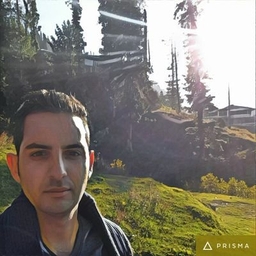The Coronavirus pandemic is an extreme test of the necessity of many parts of our daily routine. From education to office work and to the business, it hit hard every sphere of life and highlighted the importance of alternatives to traditional ways of communication. With physical distancing, employers’ transition to telework is poised to remake all of those assumptions, both for the current crisis and beyond. Though this surge in teleworking raised many questions about whether the technologies that enable telework like video conferencing, desktops, etc., can scale the enormous traffic. Still, we are bound to depend on telework as it is the only solution to significant problems we all are suffering through after lockdown.
As journalists across the U.S. scramble to cover the impact of coronavirus, while they are grappling with bitter irony. The devastating sweep of COVID19 is the biggest story for this generation that hit hard the U.S., and media outlets are facing a massive drop in advertising due to the global economic recession. To know more about how much the pandemic affected Journalists across the U.S. and how they are figuring out the significant challenges, team Scientia Pakistan had an online conversation with renowned journalist Issam Ahmad.
Issam is a Health, science, and environment reporter for Agency France Press(AFP), resides in Washington D.C. He has been reporting for the Christian Science Monitor, Guardian, Business Insider, Chicago Tribune, Times of India, and many other prominent international media outlets. Below are some excerpts of his recent conversation with our EIC, Saadeqa khan.

Saadeqa: It is not easy to work in pandemic days when there is an outburst of fake news and myths about the virus. I can realize that media persons are playing harder. How lockdown and work-from-home have affected your life being a journalist? Have you felt anxious or overburden?
Issam: It’s true that science and health reporters have a far greater workload these days, and our beat is center stage, but that the same time it’s good to keep busy during the lockdown and feel like you’re helping in some small way keeps the public informed. I’m glad to be productive!
Saadeqa: At the moment, global coronavirus cases pass 1.8 million amid fears of the second wave in the U.S. Many U.S. officials, including President Trump, ignored early waning of WHO released in January about the pandemic and now suffering its consequence. Did U.S. media intentionally neglected the severity of the situation, or were they unable to realize initially?
Issam: Actually, I think the WHO was partly responsible for downplaying the outbreak — they first said asymptomatic carriers weren’t an issue, they said there was no need for travel bans, and they didn’t criticize China at all for its early cover-up. The U.S. media was preoccupied with domestic politics well until late February, as I think was media around the world.
Saadeqa: There are a whole bunch of conspiracy theories circling about coronavirus pandemic like death toll in the U.S. has been overstating, often claims right-wing media. We know that Johns Hopkins coronavirus recourse center is releasing accurate data, but how can media and U.S. officials adequately deal with such conspiracies?
Issam: This is a significant problem, as you noted, it appears to come more from the political right. At least the major conservative outlets belatedly changed their tunes, even if more fringe voices haven’t. But on the whole, I’m encouraged by the public’s response to lockdown guidance and orders. Then again, my view might be skewed by living in Washington DC, not a rural Republican state.
Saadeqa: The coronavirus anxiety is getting viral worldwide, and we all are feeling that at a larger scale. What is the role of print and electronic media to descend this overgrowing sense of fear in public?
Issam: Reporting the facts as accurately as possible, and mediating the plethora of scientific studies and data that are emerging — sifting through them, placing them in their context, explaining it well so that it can be understood and acting on. Also, its key does not overhype preliminary work, such as studies that promote or ‘debunk’ one drug or the other based on small studies.
Saadeqa: Public health experts in the U.S. have widely been criticizing Trump administration for the severe lack of planning for such pandemics for the U.S. becoming the global hotspot of coronavirus. What flaws do you locally witness in management while living in Washington, DC?
Issam: The White House downplayed the crisis for too long, overriding the advice of top officials from the CDC. Testing was too slow to get off the mark because of regulatory delays and technical issues. Then the U.S. federal system of governance meant that the states were too late in coordinating their mitigation actions. The President belatedly shifted his tone, but we still see him doing irresponsible things like promoting hydroxyl-chloroquine as a miracle cure. It might work, but we need to listen to the scientists who tell us we need more data in the form of Randomized Control Trials to be sure.
Saadeqa: How lockdown and self-isolation affected reporters/journalists’ contribution to their media outlets and how News editors are managing this situation in the U.S.?
Issam: There were teething issues early on due to coordinating while teleworking, but honestly, I think if anything this period has shown us that teleworking is feasible, especially for text reporters. For our photographer and video colleagues, it’s another story. A might be a good thing to emerge from the crisis might be greater faith in telework, which is overall better for the environment.
Saadeqa: International media outlets have specific science desks, but here in Pakistan, science still never consider as a genre in journalism. Do you think that institutions like CEJ IBA, LUMS, or Karachi University should kick start science reporting courses specifically for WEB/NEWS editors on an immediate notice?
Issam: Yeah, I think that’s not a bad idea. But I think the broader reason for a lack of science reporting in Pakistan is that there isn’t much scientific research happening in Pakistan. It’s practically a non-entity as far as original research is concerned. Even when compared to, for example, neighboring Iran. The problem won’t change until the Pakistani government gets serious about STEM higher education — not just for undergraduate courses but real research. That takes time and money and would need to find ways to stop/reverse the brain drain.
Also Read: Prof Dr. Sabieh Anwar on Molding the challenges of Online Education into Opportunities

Saadeqa Khan is the founder, CEO, & Editor-in-Chief of Scientia Pakistan. She’s a member of the Oxford Climate Journalism Network (Second Cohort) and NASW. Saadeqa is a fellow of NPF Washington, The Falling Walls Foundation, and the Science Journalism Forum. Saadeqa has won several international journalism grants and awards for her reports.

